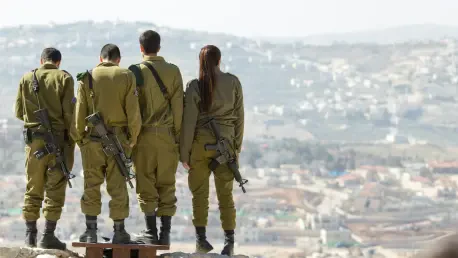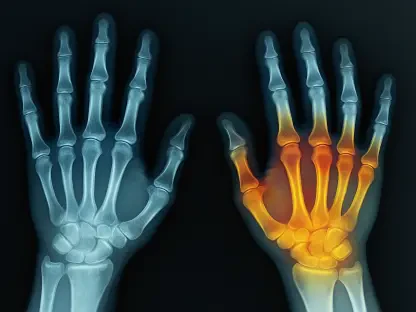The geopolitical terrain of the Middle East continues to present a complex tapestry of challenges, with recent developments highlighting Israel’s dual approach of military operations and humanitarian outreach in a volatile region. Israeli Defense Forces (IDF) have actively engaged in military advancements while simultaneously dispatching aid, reflecting a multifaceted strategy. This scenario illustrates the intertwining of strategic military maneuvers and the pursuit of diplomacy through humanitarian support, set against a backdrop of regional conflict and domestic political friction.
Israel’s Military Engagements
On the Ground in Gaza
The Israeli Defense Forces recently launched a ground assault in the Deir el-Balah region of Gaza, targeting areas that had remained undisturbed for nearly two years. This military engagement unfolded amidst widespread evacuations of civilians, as suspicions arose concerning Hamas’s potential hostage activities in the area. The IDF’s incursion underscores the enduring and volatile nature of Israel’s conflict with Hamas, as military strategy intertwines with concerns over the safety and well-being of civilians caught in the crossfire. These developments have intensified the focus on hostage families, raising urgent calls for resolution and international attention.
Tensions in Gaza are further exacerbated by the humanitarian crisis unfolding within the enclave. The local population faces dire conditions, with critical shortages of basic necessities due to ongoing blockades and restrictions. Aid distribution has been a hotly contested issue, with criticisms mounting against the United Nations for perceived inadequacies in managing relief efforts. In response, the Gaza Humanitarian Foundation has expressed a willingness to assume control over aid distribution, underscoring the urgency of addressing rampant looting and logistical challenges that have hindered the flow of essential supplies to those in need.
Strategic Targets in Yemen
Beyond its engagements in Gaza, the IDF has also undertaken military operations in Yemen, specifically targeting Houthi factions linked to Iran. This strategic military campaign reflects Israel’s broader geopolitical concerns, particularly regarding Iran’s influence in the region through proxy groups. The Israeli government is keenly aware of the potential threats posed by these groups’ proximity and connections to pivotal areas. The operations in Yemen aim to disrupt supply chains and communication networks, thereby diminishing Houthi capabilities and signaling Israel’s resolve against regional instability fomented by Iranian-backed entities.
These military activities serve as a stark reminder of Israel’s complex position within a fractured regional landscape. The balancing act of engaging in direct conflict while preparing for possible future repercussions requires a nuanced and deliberate approach. The ongoing situation also intersects with international diplomatic efforts concerning Iran’s nuclear program, adding another layer of complexity to regional dynamics. These developments highlight the intricate interplay of military strategy and diplomatic engagement in navigating the uncertainties of the Middle East.
Humanitarian Outreach
Aid Efforts in Syria
Amidst the backdrop of military actions, Israel has demonstrated a commitment to regional humanitarian causes, most notably through its outreach to Syria’s Druze-majority province of Sweida. Recent efforts have included the delivery of medical aid and equipment to support a region beleaguered by conflict. Israel’s longstanding relationship with the Druze community has fostered initiatives that extend beyond ethnic and national borders, serving as a testament to the nation’s diplomatic and humanitarian strategies. The situation in Sweida has been dire, with significant casualties resulting from hostilities, prompting humanitarian interventions as crucial stabilizing measures.
These efforts not only offer immediate relief to embattled communities but also serve broader diplomatic objectives. By extending aid to Sweida, Israel strengthens its alliances and underscores its engagement in regional peace-building processes. The initiative has been perceived as a strategic move towards fostering goodwill among neighboring communities and mitigating tensions. Such diplomatic actions emphasize the importance of maintaining historical ties while navigating the complexities of modern-day conflicts in the region, where alliances are often fragile and transient.
Addressing Gaza’s Humanitarian Challenge
While the IDF carries out military operations, Israel’s humanitarian focus persists within Gaza, where the humanitarian crisis continues to be a pressing concern. The blockade and operational constraints have led to exacerbated shortages of essential supplies, affecting the livelihoods of countless individuals. Amidst criticism of inefficiencies in international aid distribution, local NGOs, such as the Gaza Humanitarian Foundation, have emerged as vital actors in addressing logistical challenges and pressing humanitarian needs. These organizations strive to mitigate the impact of regional conflicts on civilian populations, fostering resilience through community-based interventions.
Efforts to balance military actions with humanitarian commitments within Gaza squarely center on the need to alleviate the plight of civilians. While confronting the threat posed by Hamas, Israel seeks to maintain a humanitarian channel as a bridge for broader peace-building endeavors. The intricate balance of security operations and aid initiatives reflects a nuanced approach to addressing the multifaceted challenges of the region. Long-term solutions require a concerted effort to integrate security, diplomacy, and humanitarian outreach in pursuit of sustainable peace.
Domestic Politics and Regional Implications
Political Strife in Israel
Within Israel, the political landscape adds another layer of complexity to the broader regional issues. Recent tensions have surfaced within Israel’s government, particularly as the Shas party openly opposed the inclusion of Minister Haim Katz from the Likud party to manage ministerial portfolios. This conflict highlights internal frictions that could affect the stability and decision-making processes of Israel’s leadership. Domestic politics often serve as a prism through which regional decisions are viewed, with internal dynamics playing a crucial role in shaping foreign policy and military formulations.
The government’s approach in reconciling internal disagreements signifies a broader challenge of unifying diverse political agendas for coherent governance. As political discord unfolds, it propels the consideration of regional strategies and potential ramifications, fostering nuanced discussions among Israeli leadership. The political landscape underscores the delicate balance of steering domestic affairs amid regional tumult, necessitating agile governance to effectively address the dynamic geopolitical context faced by Israel.
Broader Regional Context
The geopolitical landscape of the Middle East persistently presents a web of complications, with recent events emphasizing Israel’s dual strategy that combines military activities with humanitarian initiatives in a volatile setting. The Israeli Defense Forces (IDF) are involved in strategic military operations while simultaneously implementing humanitarian aid efforts. This reflects Israel’s multifaceted approach that merges defense tactics with diplomatic gestures aimed at fostering stability and support in the region. This dual-track strategy illustrates how Israel seeks to balance aggressive military maneuvers with diplomatic endeavors, deploying humanitarian outreach as a tool to mitigate conflict repercussions. Amidst regional unrest and the friction within its domestic politics, Israel’s approach demonstrates its attempt to navigate this complex environment by leveraging both hard power and soft tactics to address immediate threats while promoting peace and stability through humanitarian efforts.









